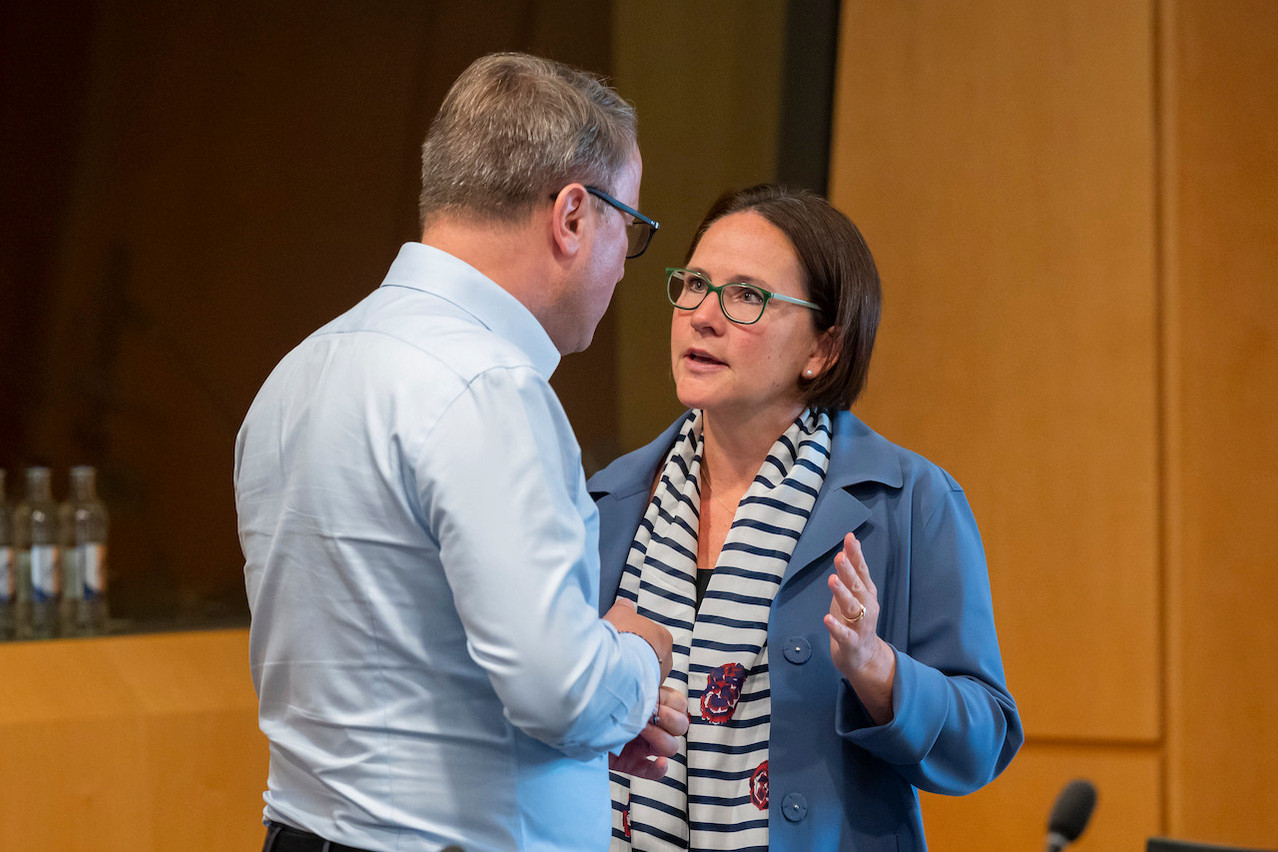The end of three long days of negotiations between government, employer and trade union representatives at Château de Senningen came late on Tuesday evening. Prime minister (DP) announced that all sides had reached agreement on a package of measures that will help households and businesses to some extent weather the energy and cost-of-living crisis that was set to cause inflation to rise to close to 7%.
Bettel held a press conference shortly after 11pm alongside of employers’ federation UEL and Nora Back of the country’s largest trade union, the OGBL and other representatives from all three sides of the tripartite.
“Today we decided on a historic relief package to maintain prosperity in a responsible manner,” Bettel wrote in a Tweet just before midnight. “Social dialogue lives on, and we can be proud of that!”
€1bn package
The most significant measure will be what Bettel called a “historic agreement” that will cost the state over €1bn. The price of gas will be capped at 15% above the current rate while electricity prices will be frozen completely.
In addition, the cost of heating oil will be reduced by 15 cents per litre and the government will also introduce a temporary reduction of VAT that will see the standard rate cut from 17% to 16%, the intermediate rate from 14% to 13% and the reduced rate from 8% to 7%. Consumers will also be given financial help to switch from gas or oil heating to electricity and a subsidy for public electric charging stations will also be introduced. The state will also provide help to allow residents in elderly home facilities to meet their energy bills.
We have submitted an anti-inflation package, which has never been seen in Luxembourg in this form and scope.”
The agreement also foresees the minimum social wage adjusted to reflect changes in the average wage. The cost-of-living aid and energy premiums currently allocated to low-income households are being extended to the end of 2023.
Read also
The package for households should help slow down the inflation rate so that it will fall well below even the most optimistic of Statec’s three scenarios published last week. That would mean there would be no additional automatic indexation of wages in 2022, with the next rise expected in February 2023, just two months before the April salary increase that was held over from earlier this year under an agreement reached
Unlike that meeting, the OGBL appears to be happy with the latest package.
“In a crisis that is hitting our country, our people and our businesses very hard, we have taken responsibility to relieve people and businesses,” Bettel said. “We have submitted an anti-inflation package, which has never been seen in Luxembourg in this form and scope.”
Help for businesses
Businesses, too, will receive assistance under the new measures announced on Tuesday. Bettel said that the country depended on healthy businesses that maintain jobs and prosperity. “That is why we have to support the companies that are particularly suffering in this energy crisis. We will also support the companies in digitisation and the energy transition,” he added.
Small and medium size enterprises will get additional help with their energy bills and tax credits for investment will also be modernised. A call for tenders will also encourage businesses to become more self-sufficient in their energy use. More specific state aid will have to be submitted to the European Commission for approval.

